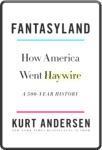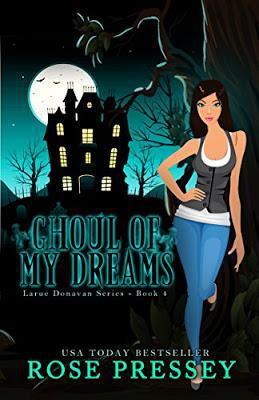 Kurt Andersen is a distinguished author, editor, and social critic. A former editor of New York magazine and founder of Spy, Andersen is the co-founder and host of Studio 360 from Public Radio International. His writing has appeared in Time, Vanity Fair, The New Yorker, and The New York Times, among others. His new book, Fantasyland: How America Went Haywire, offers a sweeping, 500-year history of the oddly American propensity to believe the unbelievable.
Kurt Andersen is a distinguished author, editor, and social critic. A former editor of New York magazine and founder of Spy, Andersen is the co-founder and host of Studio 360 from Public Radio International. His writing has appeared in Time, Vanity Fair, The New Yorker, and The New York Times, among others. His new book, Fantasyland: How America Went Haywire, offers a sweeping, 500-year history of the oddly American propensity to believe the unbelievable.
ECM: Compared to people from other nations, are Americans uniquely credulous?
KA: The short answer is yes. Now, credulity is not unique to the United States, and one person’s credulity is another person’s deep faith, and I don’t want to minimize that. But I would make two points:
First, the great historian Daniel Boorstin—who I quote in the book—has said that, at the very beginning, Americans self-selected for their belief in advertising. The “New World” was this empty slate being advertised to English settlers, and the people who came over in those first few decades were people who believed the promises when, in fact, there was nothing here. Does that count as credulity? It certainly counts as a wishful pre-disposition to believe.
Second, the United States has always been far more religious than its peer nations, with a far more fervent belief in prayer, in divine intervention, in faith healing, and all the rest. On these points, we in the United States are outliers among the developed world.
So, all that to say—yes, I think we are more credulous than other people. Not uniquely credulous, but more so and in more ways than most other people, and it defines us in a way that it does not define other people.
ECM: At various points, you cite an anti-establishment streak in the American temperament. Would you say that Americans are generally too quick to disbelieve official accounts and too quick to believe alternative theories?
KA: Yes, I think that is precisely correct, and I think it is in large measure a result of the nation having been born of the Enlightenment and of fervent Christianity. These are flipsides, too. This extreme credulity and extreme skepticism are yin and yang, or flipsides of the same coin—the operative word being extreme. Skepticism is fine, and good, and necessary. Belief, too, is fine, and good, and necessary. But when either of them gets extreme, it becomes problematic. And when you combine the two into this American hybrid—as we have in recent decades—they become very problematic.
ECM: Since you mention the founding influence of Christianity, how much of this is traceable to forces in American religious history?
KA: Well, I haven’t quantified it, but a good chunk! As you know, I talk about American religious history at great length because I think it is the most powerful driver—it’s not exclusive, and may not even account for the majority of the explanation, but certainly a strong plurality. And to be clear, I am not referring simply to church-going or nominal Christianity, but what has become, especially in the last half-century, the sort of extravagant and flamboyant Christian belief and practice that is virtually unique to this country.
I would also note that, in the last couple of decades, one of our major political parties has become explicitly and aggressively Christian in this unique sense. Many of its members believe more and more empirically insupportable things about supernatural interventions in contemporary life, and that then bleeds over into believing things that are untrue outside of the religious realm, as with the claim that climate change is a hoax, for example.
Just in the last 15 years, it has become Republican orthodoxy to disbelieve in evolution and to challenge evolution instruction in the public schools. This is a uniquely American phenomenon, and it is a product of a religious tradition that, starting about a half a century ago, decided to make that stand in favor of creationism.
So religion is important, but it is not the only thing. It’s in the mix with other forces, such as our over-amped Enlightenment skepticism, our extreme individualism, and even our knack for show business fantasies and our obsession with entertainment. And there are others. Religious belief is a major driver of this tendency, but it is synergistic with these other factors.
Read the whole thing at Religion Dispatches.
Share this:




